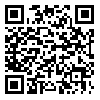Volume 3, Issue 1 (2023)
jpt 2023, 3(1): 59-72 |
Back to browse issues page
Download citation:
BibTeX | RIS | EndNote | Medlars | ProCite | Reference Manager | RefWorks
Send citation to:



BibTeX | RIS | EndNote | Medlars | ProCite | Reference Manager | RefWorks
Send citation to:
Roshani Rad H. Phronesis and its Relationship with Theoretical Wisdom According to Aristotle. jpt 2023; 3 (1) :59-72
URL: http://jpt.modares.ac.ir/article-34-65166-en.html
URL: http://jpt.modares.ac.ir/article-34-65166-en.html
Tehran University
Abstract: (1067 Views)
In Nicomachean ethics, Aristotle divides the soul into two fundamental parts, the knowing part and the calculating part, the virtue of the first part is theoretical wisdom (Sophia) and the virtue of the second part is practical wisdom (Phronesis). This distinction is based on the ontological distinction between becoming and stability because the subject of practical wisdom is the realm of changeable affairs and the subject of theoretical wisdom is eternal affairs. In this research, we will first show that the intuitive intellect or Nous is the connecting factor of these two realms: Nous receives the ultimate principles from both sides, in the framework of theoretical knowledge, Nous knows the most general concepts of eternity and in the framework of Practical wisdom receives the partial individual. We will also argue that practical wisdom is the agent of realization of theoretical wisdom: Phronesis is the power of receiving the highest good, that is, the life according to the Sophia. The interpretation of the relationship between Phronesis and Sophia as a “necessary – end” suggests a way out of two conflicting interpretations of Aristotle’s ethics- the rationalist and holistic interpretation of happiness – which we will address.
Article Type: Original Research |
Subject:
Philosophy of Ethics (Ancient)
Received: 2022/11/1 | Accepted: 2023/02/9 | Published: 2023/02/20
Received: 2022/11/1 | Accepted: 2023/02/9 | Published: 2023/02/20
References
1. Aristotle (1924). Nicomachus' ethics. Lotfi al-Sayed A, translator. Cairo: The Egyptian Book House Press. [Arabic] [Link]
2. Aristotle (1934). The Nicomachean Ethics. Rackham H, editor. Portsmouth, New Hampshire: William Heinemann Ltd. [Link]
3. Aristotle (1998). Metaphysica. Khorasani S, translator. Tehran: Hekmat Press. [Persian] [Link]
4. Aristotle (2002). Nicomachus' ethics (Volume 2). Pour Hosseini SA, tarnslator. Tehran: Tehran University Press. [Persian] [Link]
5. Aristotle (2006). Nicomachus' ethics. Lotfi MH, tarnslator. Tehran: Tarh-e Nou. [Persian] [Link]
6. Aristotle (2009a). Ethica Nicomachea. Ross WD, translator. Oxford: Oxford University Press. [Link]
7. Aristotle (2009b) Metaphysics. Ross WD, translator. Sioux Falls, SD: NuVision Publications. [Link]
8. Aristotle (2014). About the ego. Davoudi AM, translator. Tehran: Hekmat Press. [Persian] [Link]
9. Avicenna (1983). TABAYEIYAT ALSHIFA. Qom: Ayatollah Marashi Najafi Library. [Arabic] [Link]
10. Barnes J (1984). The complete works of Aristotle; The revised Oxford translation (Volume 2). New Jersey: Princeton University Press. [Link] [DOI:10.1515/9781400835850]
11. Gavin L (1993). Aristotle and the ideal life. The Philosophical Review.102(1):1-34. [Link] [DOI:10.2307/2185651]
12. Hardie WFR, Monan DJ (1968). Aristotle's ethical theory. Ethics. 80(1):76-82. [Link] [DOI:10.1086/291754]
13. Hutchinson DS (1986). The Virtues of Aristotle. Ethics. 99(2):428-429. [Link]
14. Hughes GJ (2001). Aristotle, on ethics. Oxford shire: Routledge. [Link]
15. Khorasani S (2014). Socrates to Aristotle. Tehran: Shahid Beheshti University Press. [Persian] [Link]
16. Liddell HG, Scott R (1996). Greek-English Lexicon. 9th Edition. Oxford: Clarendon Press. [Link]
17. Heidegger M (2018). Platon; Sophistes (Wintersemester 1924/25). In: Schussler I, editor. Martin Heidegger Gesamtausgabe. Frnkfurt: Verlag Vittorio Klostermann. [Link]
18. Pakaluk M (2005). Aristotle's Nicomachean ethics an introduction. Cambridge: Cambridge University Press. [Link] [DOI:10.1017/CBO9780511802041]
19. Sadruddin Shirazi MI (2004). AL-ISFAR AL-UQLIYYAH AL-ARBA'AH (Volume 8). Tehran: Sadra Publications. [Arabic] [Link]
20. Plato (1963). Plato the collected dialogues including the letters. Hamilton E, Cairns H, editors. New York: Pantheon. [Link] [DOI:10.1515/9781400835867]
21. Randall GH (1960). Aristotle. New York: Columbia University Press. [Link] [DOI:10.7312/rand90400]
22. Ross WD (1998). Aristotle. Qavam Safari M, translator. Tehran: Fakhr-e-Rooz. [Persian] [Link]
23. Urmson JO (1973). Aristotle's doctrine of the mean. American Philosophical Quarterly. 10(3):223-230. [Link]
24. Zeller E (1962). Aristotle and the earlier Peripatetics. New York: Russell and Russell. [Link]
| Rights and permissions | |
 |
This work is licensed under a Creative Commons Attribution-NonCommercial 4.0 International License. |







